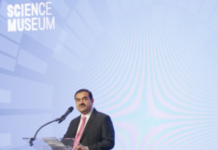New Delhi– In order to achieve food security for its population India has ignored nutritional security, which can be addressed now by incorporating millets in the diet, said Karnataka Agriculture Minister Krishna Byre Gowda here on Monday.
The central government has also responded positively saying millets consumption would be encouraged through mid-day meals and public distribution schemes.
Millets are gluten-free, sugar-free and contain significant amount of nutrients, which can help people suffering from various ailments, Gowda said while speaking about International Trade Fair- Organic & Millets 2018, scheduled to be held in Bengaluru in January next year.
“India was aware of organic farming not more than 30 years ago. Millets were part of our staple diet, which were suddenly driven out by the Green Revolution. Their share in our diet has reduced to just 5 per cent,” Gowda said after unveiling a new website and logo for the fair.
“Ragi (millet) has highest amount of calcium among any crops and significant amount of iron. Millets are gluten-free and do not lead to increase in sugar level in the human body. It provides solution to many ailments we are facing today.”
In the same event, Union Agriculture Secretary Shobhana Patnaik said the government had considered increasing intake of millets in diet through mid-day meal schemes in schools and public distribution schemes.
He also said there were certain issues such as need of high-yielding varieties, increasing shelf life of millets and mechanisation of harvest that were supposed to be solved.
The central government had asked the United Nations to declare 2018 as ‘Year of Millets’, he added.
Majorly grown in dryland areas, millet is the most drought tolerant and climate- resilient crop and its yield can be increased with irrigation and other necessary agriculture inputs, Gowda said.
Ragi, sorghum (jowar), bajra are major millets while Foxtail millet, Little millet, Baryard millet, Browntop millet, Kodo millet and Proso millet are minor millets. (IANS)






